In Davos, Deepening Worries About China And The Global Economy
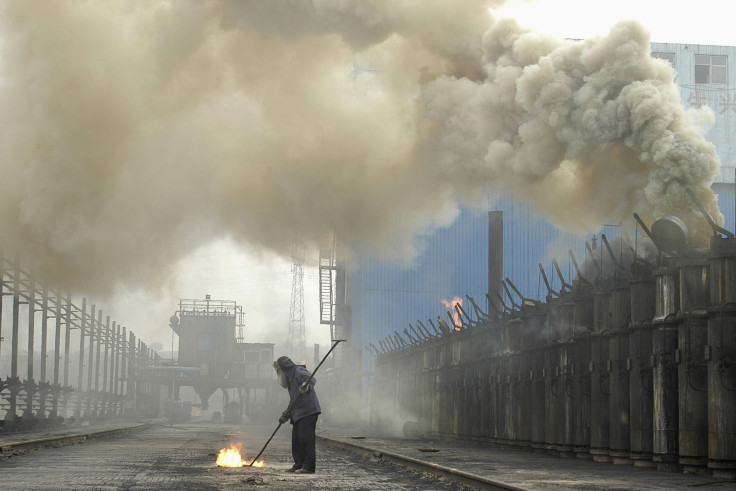
DAVOS, Switzerland — Despite the usual trappings of revelry here in the Swiss Alps at the World Economic Forum — mod cocktails and elaborate hors d'oeuvres served up by banks and tech companies — an unfamiliar mood grips the proceedings: gloom.
World leaders and people in charge of money are nursing angst over the potentially perilous state of the global economy. They confront an overwhelming array of crises all at once — China’s economic slowdown, the collapse of energy prices, plunging stock markets, confusion over monetary policy, conflict in the Middle East, an attendant surge of refugees into Europe, and the ever-present threat of terrorist attacks.
Though the International Monetary Fund forecasts global economic growth of 3.4 percent this year, these crises hold the potential to disrupt trade, commerce and life as we know it. These days, a surprise tends not to be cause for celebration.
“There are market vibrations, certainly a heightened sensitivity to risk,” said European Central Bank Governor Mario Draghi in a forum conversation here Friday morning.
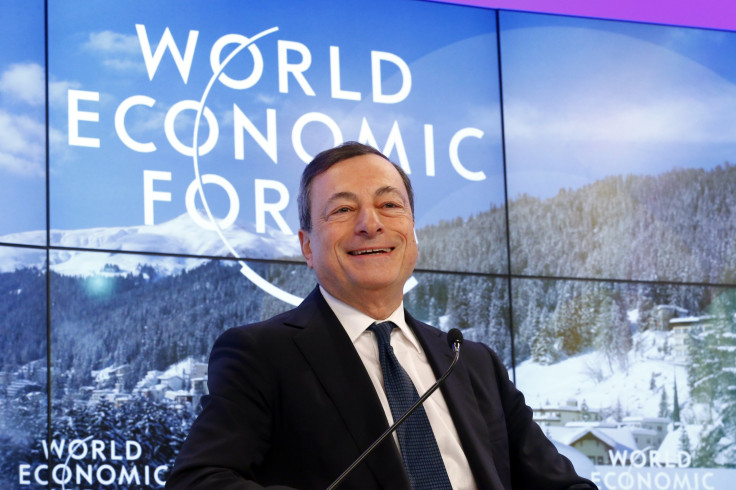
At the center of all worries sits China, the world’s second-largest economy. Officially, China’s economy expanded by 6.9 percent last year. Though that number would stimulate salivary glands virtually anywhere else on earth, it constitutes China’s slowest pace of growth in a quarter-century. And while China’s Communist Party government has telegraphed what it portrays as a managed economic slowdown for more than a year — describing a “new normal” — markets worldwide have recoiled, envisioning ripple effects on every shore touched by trade.
The Chinese government is seeking to transition from export-led growth that has been heavily subsidized by the state, now saturated in debt, to one fueled by growing consumption. Many economists and investors have parsed the numbers to conclude that even the slower pace of growth is being goosed by continued borrowing and inefficient investments into real estate and infrastructure, with the bills sure to come due. Some obsess over key indicators such as rail traffic and electrical consumption, which are consistent with slower growth — as little as 3.5 percent to 5 percent annually.
“It’s serious, and the Chinese left it too long to address the changeover in the growth model,” said the billionaire investor and philanthropist George Soros, speaking here at a private dinner on Thursday night. “A hard landing is practically unavoidable.”
Soros has a history of anticipating disaster, racking up speculative profits in the currency market amid the unfolding of the Asian financial crisis in the late 1990s, then sounding a warning about what he called a “superbubble” in 2008, as the American mortgage meltdown spawned a global financial crisis. Here in Davos, he has been intoning about uncomfortable parallels with that not-distant history.
“We are repeating it,” he said, referencing 2008. “It was a time of financial crisis and bear markets, and you have the same conditions again.”
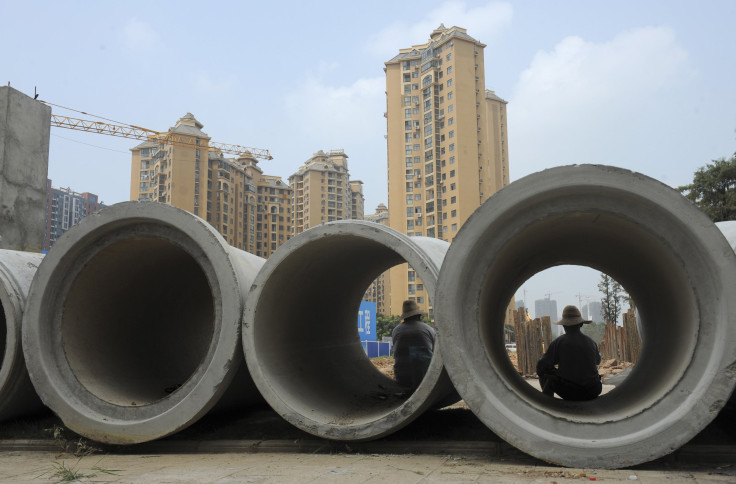
Then, it was the American subprime mortgage fiasco that blossomed into a derivatives crisis and then a global financial panic. This time, he says, China is the locus of worry, amid concerns that slower growth will prompt the government to dump large quantities of goods on world markets in a bid to protect Chinese factory jobs, sending prices lower in the dynamic known as deflation.
Deflation is a word that sends chills down the spines of economists. While lower prices are invariably appealing to consumers, a sustained period of falling prices discourages companies from investing and hiring, a dynamic that can be especially hard for policymakers to dislodge. Deflation was a key feature of the 1930s Great Depression; and deflation has been the central culprit in Japan’s decades of stagnation following the bursting of its real estate bubble in the late 1980s.
As Soros portrays it, deflation is taking root again, exacerbated by China. “They have a way of inflicting that problem, passing it on to the rest of the world,” he said.
For now, deflation is mostly about plunging energy prices. A barrel of Brent crude oil — the widely watched benchmark — was selling for about $30 Friday, less than half the price it fetched last summer, and down some 75 percent over the last 18 months.
In some corners of the world, low oil prices are grounds for champagne. For countries such as Japan and Germany, which rely on imported oil, cheaper prices amount to a key injection of economic stimulus. But in major oil producers such as the United States, Nigeria and Venezuela, low oil prices spell lower revenues, while discouraging investment in exploration, which has contributed to the rout on stock markets. In the Persian Gulf, cheaper oil stokes destabilizing rivalries between regional powers such as Iran and Saudi Arabia.
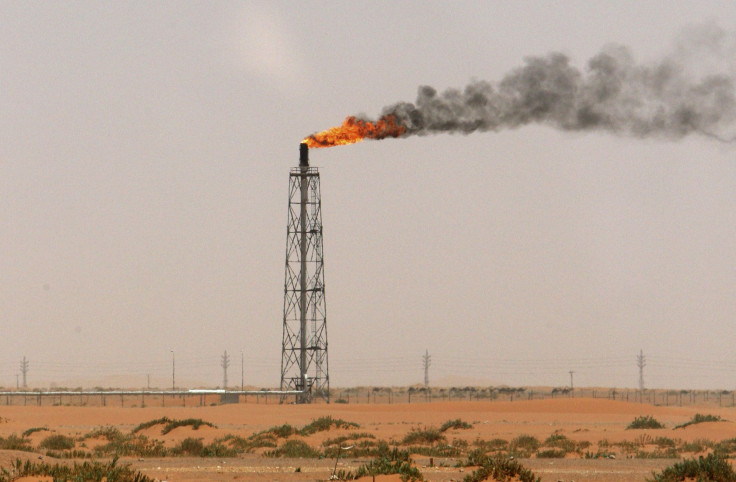
Most broadly, the continued drop in energy prices is taken by economists as an indication of weak demand for goods and services — a sign of flagging economic activity.
The European Central Bank has been aiming for a 2 percent rate of inflation, the flip-side to deflation. On Friday, Draghi, the bank’s governor, pronounced himself especially concerned about oil prices as a bearer of deflation.
“Certainly the situation gives less reason to be optimistic,” he said.
China has swelled into the European Union’s second-largest trading partner, absorbing nearly 10 percent of its exports, according to official figures. That promising picture has since morphed into a fresh source of unease.
“We have to live with the slowdown in China,” French Economy Minister Emmanuel Macron said here Friday morning in an informal session with reporters. “You have consequences in global growth, for sure. That’s not rocket science.”
France is relatively cushioned against this dynamic, Macron said. “Germany is far more affected,” he added. And yet France has ample material for worry. “Middle East volatility and low oil prices,” Macron said. “That’s much more the combination we need to be concerned about. We will not see any spontaneous upside coming from the rest of the world.”
Some investors and economists assert that the pervasive sense of alarm has lapped the fundamentals. As China’s stock market has plunged, shedding nearly half its value since June, it has amplified visions of trouble, triggering sell-offs from Tokyo to London to New York. The S&P 500 has lost nearly 9 percent of its value since the beginning of the year, with China fears often cited as a reason.
Specialists note that China’s stock market is a poor proxy for the nation’s broader economic fortunes, with only about 7 percent of all Chinese households involved, and scant linkages to the rest of the world’s financial system.
“Chinese understand how volatile their market is, so few of them participate,” wrote Andy Rothman, investment strategist at Matthews Asia, in a note to clients this week.
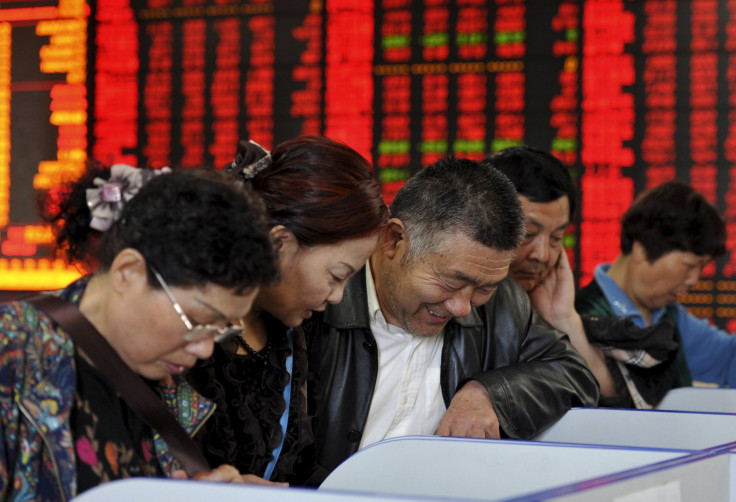
Taking aim at the conventional wisdom that China remains overly dependent on exports, Rothman found what he portrayed as substantial reason for optimism in the data: “Few investors recognize that 2015 was the fourth consecutive year in which the manufacturing and construction part of the economy was smaller than the consumption and services part,” he noted. By his reckoning, consumer spending is now driving roughly two-thirds of China’s overall economic growth.
But even among those inclined to the view that irrational panic has seized the markets, some fret that fear may have already metastasized into a real economic problem: As people pull money from the markets and seek to cushion themselves against further losses, consumers spend less, depriving businesses of revenues, and ultimately limiting firms’ willingness to invest and hire.
"The economic numbers aren't particularly worrying,” said Andrea Orcel, investment bank president at the Swiss financial services giant UBS Group. “The markets on the other hand have lost confidence. There is a lot of uncertainty out there. Certainly the market can influence the economy. At this point in time at least in the investment bank, we see, investors and clients staying on the sideline. That in return feeds into levels of activity and everything else, so it does have an impact on the economy.”
For many people wandering Davos, here is the most troubling factor of all — a dearth of reliable information about major elements that matter. When and where will ISIS strike again? Who knows. How long will the Syrian civil war carry on, yielding more refugees streaming toward Europe? Ditto. And when will European governments unite on how to manage them? Europe and union are two words in an uneasy marriage. Why are stock markets falling? Even on the cable television networks that pretend to be able to distill answers, the narrative can change by the hour.
The biggest black box of all is China. Doubts persist about the reliability of government data, and the consequences have been amplified by an expanding government crackdown on the press: These days, China has taken to prosecuting even financial journalists when they fail to adhere to the Party line, further undermining the flow of information.
Among China watchers, the most satisfying explanation for how a stock market plunge in Shanghai has spread to foreign locales centers not on economic fundamentals but what it says about the limits of power in Beijing. The Chinese government publicly urged investors to buy shares and then vowed to support prices as markets plunged. All the way, the markets continued down. This has left the impression that, just as China looms larger than ever in the global economy, and just as the complexities and mysteries of that economy seem to be multiplying, the central government is less than fully in charge.

“Investors seem spooked by the ineptitude of Chinese policy makers in the face of crashing stock prices,” said Nariman Behravesh, chief economist at IHS, a market research firm.
Many economists express befuddlement over central bank policies, with some critical of the U.S. Federal Reserve’s decision to lift interest rates earlier this year — “a mistake has happened,” Soros said — and others asserting that Europe just missed an opportunity to spur the economy with lower rates.
Few speak confidently about what lies ahead.
“We're all driving through a fog,” said Orcel, the UBS investment banking president. “It's very difficult to see where it's all going to land, and it’s difficult to plan for business where things are so foggy and uncertain, so at this point in time, we are trying to be as defensive as we can be, which in turn adds to this low level of activity.”
David Sirota contributed to this report.
© Copyright IBTimes 2024. All rights reserved.











